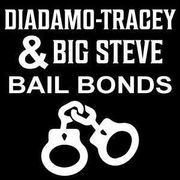How Are Bench & Arrest Warrants Different?

A judge might grant law enforcement an arrest warrant if you're suspected of committing a crime. After you're arrested, they may also issue a bench warrant if certain circumstances are present. Knowing more about both types of warrants will help prepare you to take control of the situation if it ever arises.
The Difference Between Bench & Arrest Warrants
What Are Bench Warrants?
Missing hearings, violating probation terms, ignoring subpoenas to testify in court, falling behind with child support, and not paying traffic fines all have severe consequences. As a first strike, the judge might issue a bail commissioner’s letter. However, if you still fail to comply, a bench warrant could be issued for your arrest. If you are out of jail on a bail bond, getting arrested again means you have to give up the bond. A bail bondsman can help you post a new one.
What Are Arrest Warrants?
 If you are suspected of participating in a crime, police will ask a judge for an arrest warrant. For the warrant to be granted, law enforcement must prove they have probable cause and have gathered enough evidence against you. If a police officer sees you in the act of committing a crime, such as breaking into a building or driving under the influence, you can be arrested on the spot without the need for a warrant. When you appear in front of the judge, you can work with a bail agent to secure a bond, which will keep you out of jail until your next scheduled court appearance.
If you are suspected of participating in a crime, police will ask a judge for an arrest warrant. For the warrant to be granted, law enforcement must prove they have probable cause and have gathered enough evidence against you. If a police officer sees you in the act of committing a crime, such as breaking into a building or driving under the influence, you can be arrested on the spot without the need for a warrant. When you appear in front of the judge, you can work with a bail agent to secure a bond, which will keep you out of jail until your next scheduled court appearance.
If you have been arrested in the New Haven County, CT, area, the professionals at DiAdamo-Tracey & Big Steve Bail Bonds in East Haven will help you secure bail money. With over 60 years of experience, they will let you know your legal options after a bench or arrest warrant has been issued so you can resolve the matter quickly. To learn more about bail bonds services, call (203) 787-2245 or visit the bonding company online for a better idea of what to expect.
About the Business
Have a question? Ask the experts!
Send your question

